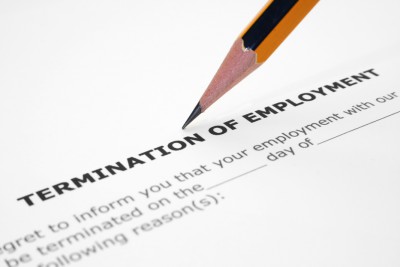Fighting Back: Navigating Unjustified Dismissal
Facing an unjustified dismissal can be a challenging and distressing experience for anyone. It can disrupt your sense of security, well-being, and financial stability. In times like these, knowing how to navigate the aftermath of such a situation is crucial. By understanding your rights and the steps to take, you can empower yourself to address the injustice and seek recourse. Whether confiabogado 've recently been let go without valid cause or fear that it may happen, having a plan in place can make a significant difference in how you move forward.
Understanding Unjustified Dismissal
In the workplace, unjustified dismissal can be a distressing and challenging experience for any employee. It occurs when an employer terminates an employee without valid reasons or proper procedures, causing harm to the individual's career and livelihood.
Unjustified dismissal can take various forms, such as being fired without warning, being let go for discriminatory reasons, or termination as a form of retaliation. It is essential for employees to recognize the signs of unjustified dismissal and understand their rights and options when facing such a situation.
When confronted with unjustified dismissal, it is crucial to seek guidance and support from legal professionals or relevant authorities. Proper documentation, such as employment contracts, performance reviews, and communications with the employer, can be valuable evidence in demonstrating the unjust nature of the dismissal.
Legal Protections Against Unjustified Dismissal
In many jurisdictions, employees have legal protections against unjustified dismissal. These protections vary depending on the country or state, but typically include laws that outline valid reasons for termination and require employers to provide proper notice or compensation. It's important for workers to be aware of their rights and seek legal counsel if they believe they have been wrongfully terminated.
One common legal protection is the requirement for employers to provide a valid reason for dismissal. This reason must be based on legitimate grounds, such as poor performance, misconduct, or the closure of the business. Employers cannot terminate employees for discriminatory reasons or retaliation, as these actions violate anti-discrimination laws and labor regulations.
Additionally, some jurisdictions offer avenues for appeal or dispute resolution in cases of unjustified dismissal. This may involve filing a complaint with a labor board, seeking mediation, or taking the matter to court. By utilizing these legal channels, employees can challenge wrongful termination and seek justice for unfair treatment in the workplace.
Seeking Remedies for Unjustified Dismissal
If you have been the victim of an unjustified dismissal, it is crucial to take appropriate steps to seek remedies for the unfair treatment you have suffered. The first step in this process is to gather all relevant documentation related to your employment, including your contract, performance reviews, and any communication that may support your case.
Next, it is advisable to consult with an employment lawyer who specializes in wrongful dismissal cases. A legal expert can help you understand your rights, assess the strength of your case, and guide you through the legal procedures involved in seeking redress for unjustified dismissal.

In addition to seeking legal assistance, reaching out to relevant labor authorities or regulatory bodies can also be a valuable step in pursuing remedies for unjustified dismissal. These organizations can provide guidance, investigate your situation, and potentially advocate on your behalf to ensure that justice is served.